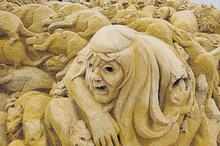The church and the bubonic plague
As historians look at history, they seek to discern the forces or people that have shaped the past. My own historical convictions have led me to focus on people as the main actors on the stage of history, not economic force or ideologies per se. Yet, there is definitely a place to evaluate the impact of such forces as these, or that of pandemics.

For instance, consider the impact of pestilence on the forces of the Athenian Empire during the early stages of the Peloponnesian War with Sparta and her allies, a war made famous by the Greek historian Thucydides. The loss of the Athenian general Pericles (c.495‒429BC) to this plague may well have affected Athenian fortunes in that war. The conquest of the Aztec world by the Spaniard Hernán Cortés was largely facilitated by a smallpox epidemic that the Spanish conquerors brought with them and against which the Aztecs had no natural immunity.


